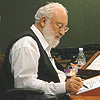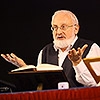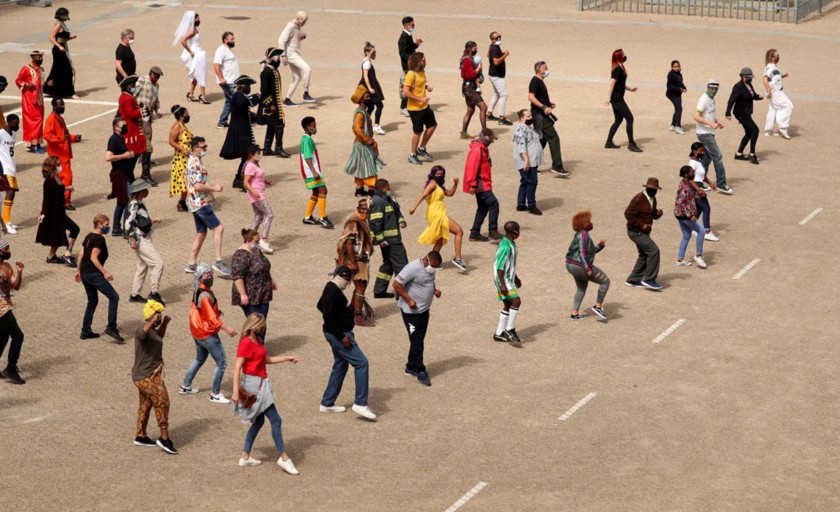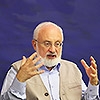
The Times of Israel published my new article “Why I Care (and Write) about the World”
Recently, I have received some questions about my interest in “worldly” matters. These readers seem to believe that kabbalists should take no interest in the material world and current affairs. However, nothing could be further from the truth. Kabbalists care a great deal about the world, and for very good reasons.
But before I elaborate on the reasons for writing and speaking about the world we live in, it is important to realize that in doing so, I am in no way the first. Great sages throughout the centuries were very interested in the events of their time. They often wrote about it, too. In the 20th century alone, two spiritual giants expressed themselves on various occasions regarding the world around them. When the great Rav Kook saw that the Jews were in danger abroad, he wrote a plea for their arrival at the land of Israel. In a declaration published in the book Essays of the Raaiah, he asked them, “Assemble one by one, wait not for formal words and orders; wait not for permits from renowned ones. Do what you can, flee and gather.” After a few more sentences, he adds, “Amalek, Petlura [anti-Semitic Ukrainian leader], Hitler, and so forth, awaken for redemption. One who did not hear [the call] … for his ears were blocked … will hear against his will.”
A contemporary of Rav Kook, the great Rav Yehuda Ashlag—known as Baal HaSulam for his Sulam [Ladder] commentary on The Book of Zohar, and the father of my teacher, Rav Baruch Ashlag (RABASH)—wrote in great detail about current affairs. His essays “The Peace” and “Peace in the World,” and his extensive composition The Writings of the Last Generation are some of the publications where he expressed his views on current affairs and politics, both in Israel and around the world.
But Baal HaSulam worked tirelessly to circulate his ideas, and mainly his warnings. He published a newspaper titled The Nation, in which he dealt only with current affairs, and predicted the outcome of WWII, Israel’s conflicts with the Arabs, and much more.
In “The Peace,” Baal HaSulam analyzes Russian communism and predicts its downfall. Even though he wrote the article in 1932, he was already convinced of Russia’s ultimate collapse. In his words, “Go and see what has become of [Russia]: Instead of rising and exceeding the achievements of the capitalist countries, they have sunk ever lower.” Note that in 1932, he already wrote in past tense, as though it was a done deal. “Now,” he continues, “they not only fail to benefit the lives of the workers a little more than in the capitalist countries, they cannot even secure their daily bread and clothes on their flesh.” Later in the essay, Baal HaSulam explains that this has happened to them because they failed to educate their people about the importance of unity and solidarity.
Baal HaSulam does not stop his explanation with Russia. In The Writings of the Last Generation, written shortly after World War II, he explains once more why communism did not succeed, and what will follow it: “Soviet Russia has already proven that an insufficiently developed society will invert the cooperative governance into the worst governance in the world. Moreover, [Marx] assumed that the subsequent phase to the ruin of today’s [capitalistic democratic] governance is the governance of the workers, but reality has shown [perhaps a reference to Weimar] that the subsequent governance to today’s governance is the Nazi or fascistic governance.”
We might think that this was a slip of the pen, so to speak, but Baal HaSulam makes his point very clear. In his writings, he mentions the word Nazi, Nazis, or Nazism 27 times, and the word “fascist” or “fascism” 11 times. In the excerpt below, he warns that the Nazi regime is likely to emerge from the Left rather than from the Right: “We should also take into account that all those who are ruining the natural process of the just governance actually came from the proletariat and emerged from their midst, and not necessarily the Soviets, but the majority of Nazis were also initially pure socialists, as well as the majority of fascists. Even Mussolini himself was initially an enthusiastic socialist leader.”
Further below, Baal HaSulam returns to Marx and writes about the danger of Nazism emerging specifically in democratic, capitalistic countries: “[Marx] thought that the subsequent stage to the bourgeois [capitalistic] regime would be a cooperative workers’ regime, but in the end, we are living witnesses that if the democratic bourgeois government were to be ruined now, a Nazi and fascist regime would promptly rise in its stead.” Worse yet, “Whenever the democratic government is ruined, a fascist, Nazi regime will inherit it.”
Baal HaSulam did not settle for writing about his predictions. He participated physically in political assemblies and parades in Poland before he moved to the land of Israel. Here, he met with political and social leaders and tried to convince them to include education toward unity in their platforms, speeches, and writings. He met with David Ben Gurion, the first prime minister of Israel; Zalman Shazar, the 3rd president of Israel; Moshe Sharett, the second prime minister of Israel; Haim Arlosoroff, head of the Political Department of the Jewish Agency, renowned poet Hayim Nahman Bialik, and many others. In all those meetings, he strove to promote the agenda of unity above differences. Regrettably, they would not listen, and today we are faced with the consequences.
My teacher, RABASH, Baal HaSulam’s first born son and successor, spoke to me at great length about current affairs and where they would develop. He knew that I would continue his path and the path of his father; we had talked about it many times, and it is my commitment to him and to Baal HaSulam to carry on with my efforts to warn humanity about the approaching cataclysm.
We need to understand that a kabbalist relates to the world in a very different way than other people. A kabbalist’s one and only goal is to help everyone develop the quality of love of others. Kabbalists strive for connection above all the differences, knowing full well that these differences all come from the singular, benevolent force that has created the world, and are implanted in the world precisely so that we will be able to develop the quality of love of others to counter the natural rejection we feel toward those who oppose our views. Were it not for the existence of opposers, we would not feel hate and would therefore have no impetus to develop love in order to counter it. It turns out that even those we hate, the Creator—the force of love and giving—put them there in order to help us grow and become loving individuals.
The countless conflicts in our world are opportunities to bridge hatred by building love between us. This is why these conflicts occur in the first place. If we acknowledge this and work on building love, our bonding strengthens and our society thrives. If we do not seize the moment and succumb to our hatred, the force of giving will have to give us even greater hatred in order to compel us to build love above it. It turns out that the more we avoid our work, the more we bring upon ourselves increasing pain and hardships.
We need to understand that spirituality means giving, love. It is not some parallel universe or an “elevated” state of consciousness where you become aloof and indifferent to material life. On the contrary, spirituality is an approach to life in this world that changes our perception of it. A kabbalist’s task is therefore to help all people see the force of giving acting behind everything that happens, and help them connect with it. A kabbalist must take interest and write about current affairs as a means to explain the operations of the giving force, the Creator, and advise people how to direct their lives, establish their own connections with the Creator, and achieve happiness and confidence in life.
When kabbalists observe the world, they look for the easiest, quickest, and most pleasant ways for people to achieve the positive transformation that they want to advance. If this way requires support for a certain political entity or direction, they will support it. They have no personal benefits to gain as a result of their support, or any other ulterior motive. Their only motivation for supporting any entity or organization, political or not, is the advancement of humanity toward connection, mutual responsibility, and solidarity. Kabbalists will support anyone who champions it, and appose anyone who hinders it.
Because kabbalists want everyone to be connected and acquire the quality of love, they care about the entire world: all the people, animals, plants, and planets. Rav Kook once said to the renowned author Alexander Ziskind Rabinovitz (AZAR): “I wish the whole of humanity could be placed into a single body, so I could embrace them all.” This is the attitude of a true kabbalist.



















